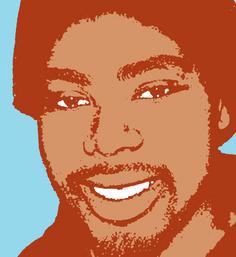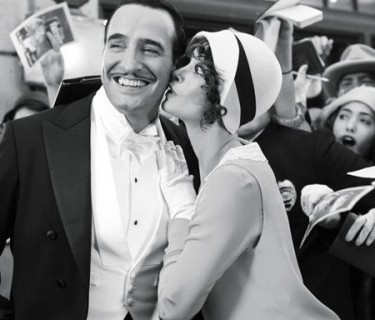Occupy Super PAC a Non-Event
Remember how everyone got all excited about that Occupy super PAC? That is what we call the work of a lone gunman.
Why Sleep Just Once a Day When Two Feels So Right?

Is it possible that we’ve completely rewritten our understanding of how people have always lived? Sure it is!
In 2001, historian Roger Ekirch of Virginia Tech published a seminal paper, drawn from 16 years of research, revealing a wealth of historical evidence that humans used to sleep in two distinct chunks.
His book At Day’s Close: Night in Times Past, published four years later, unearths more than 500 references to a segmented sleeping pattern — in diaries, court records, medical books and literature, from Homer’s Odyssey to an anthropological account of modern tribes in Nigeria.
TWO SLEEP SHIFTS A DAY! So I’m accidentally doing it right!
Neil Young Busking In Glasgow In 1976
Oh my God! Watch this video of Neil Young busking, with a banjo and harmonica, in front of the Bank of Scotland in Glasgow in 1976. He plays one of his greatest songs, “The Old Laughing Lady,” and still some silly Scot says he thinks it’s “a lot of rubbish.” Almost as good for the fashions and accents on the Glaswegian street as it is for the music.
How Long Do You Have to Live in Oakland Before Cops Shoot Your Whole Family?
How Long Do You Have to Live in Oakland Before Cops Shoot Your Whole Family?

So this guy Tony Jones is getting a ride from his mother’s to his girlfriend’s. The cops pull them over because they think they’re in some van they’re looking for, that was involved in some robbery. Apparently it’s not, because the cops let them go. But Tony gets out and walks, and the cops follow him, because, they say, he was “carrying” a gun. (Having a hard time picturing this, you know?) Then he starts running, and the officers following him “felt” like he was going to shoot at them, so the cops preemptively shoot him in the back. Gosh, why would he run? It’s not like a cop put his cousin on the ground and shot him in the back two years ago.
Religious Observances, In Order Of Popularity With Secular America
by Richard Morgan

35. Makahiki
34. L. Ron Hubbard’s Birthday
33. Solstices
32. Pioneer Day
30 and 31. Eid al-Adha & Eid al-Fitr (tied)
29. Purim
28. Diwali
27. Ramadan
26. Lent
25. Pesach
24. Epiphany
23. Equinoxes
22. Yom Kippur
21. Baptisms/Brises
20. Funerals
19. Wakes
18. Yule
17. Festivus
16. Advent
15. Day of the Dead
14. Celebrity Day
13. Sundays
12. Thanksgiving
11. Channukah
10. Easter
9. Bar/Bat Mitzvahs
8. St. Patrick’s Day
7. Carnival/Mardi Gras
6. Birthdays
5. Christmas
4. Halloween
3. St. Valentine’s Day
2. Weddings
1. Saturdays
Richard Morgan lives in New York, where his first adult trip involved him handing out evangelical tracts at 14th St and 1st Avenue, as well as giving testimony on the 6 train of his personal relationship with Jesus Christ.
Sometimes Life's Okay
“On an unseasonably warm November night in Manhattan on our way to get ice cream, we stumbled upon what appeared to be a vintage shop, brightly lit display window and all. As we began to walk in, a man sitting out front warned us that we were welcome to explore, but nothing inside was for sale. Our interests piqued, we began to browse through the collections the man out front had built throughout his life. This is a story of a man and his home.”
— You should watch the fairly short film This Is My Home
, particularly if you still have a tiny capacity for happiness. Of course I am predisposed to like this because the guy says the word “beautiful” exactly the same way that my grandmother did, but there are plenty of other reasons.
No One Seems To Be In A Very Forgiving Mood This Ash Wednesday

Well, thanks to a heads-up from CNN food writer Kat Kinsman, I was spared the annual confusion that lasts for a couple of city blocks as you walk past person after person who has apparently been very sloppy with their application of mascara, or has been hit in the forehead by a thrown lump of coal. Today is Ash Wednesday, when Catholics wear ash on their foreheads in commemoration of the forty days of fasting that preceded his crucification. It’s an act of repentance.
But, man, reading through today’s news, or looking elsewhere on the streets, people may be repenting, but they don’t seem to be in a very forgiving mood.
The Times’ Tyler Kepner says “two-time drug cheat” Manny Ramirez “has no place on the field.” His colleague Jon Caramanica tells Rihanna that it’s fine if she wants to forget that Chris Brown assaulted her two years ago as she celebrates the release of two new songs with him… “but don’t forgive.” Afghanis in Kabul are really, really not accepting NATO commanding general John Allen’s apology for the burning of Korans at Bagram airforce base. Though, “I assure you,” he said. “I promise you … this was NOT intentional in any way.” (That story is strong reminder that people should really never, ever, ever try to occupying another country.) And at the beginning of his latest single, the recently anointed “Hottest MC in the Game,” Rick Ross, says, “God forgives and I don’t.” (That’s the title to his upcoming album.) “That’s one of my many emotions. That’s one of my many flaws. I am flawed. It may not seem that way, but I am. So don’t play with me.”
I’m of a different mindset. Or well, the same mindset, in that I think it’s a flaw to not be able to forgive. I think we should do our best to forgive. It’s actually the forgetting we should avoid.
Being a person who has done lots of stupid stuff in his life, sometimes hurting others in the process, and asked for much forgiveness, I try to give people a break, while also advocating that we all do our best to ensure that truly harmful occurrences don’t happen again. (People who kill people should go to jail.) A day when so many of us are paying our own penance might be a good day to think about this. I mean, think about these people down in Jackson Mississippi that Kim Severson writes about, these wonderful “herpers” who help salamanders cross the Natchez Trace Parkway after heavy rains during mating season. Shouldn’t we extend this same kind of helping hand to our fellow humans? Even a human being as salamander-like as Newt Gingrich. Here’s hoping those guys put on a strong showing at tonight’s debate in Arizona, so this Republican primary can just keep getting crazier and crazier and ever more entertaining.
So maybe none of this is as magnanimous as it sounds. I like watching Manny Ramirez hit baseballs, too. And I would like the chance to do more of that.
If You're Gonna Delete Your Google Search History, Do It Now
“If you want to keep Google from combining your Web History with the data they have gathered about you in their other products, such as YouTube or Google Plus, you may want to remove all items from your Web History and stop your Web History from being recorded in the future. Here’s how you can do that.” [Via]
'The Artist' And What Makes A Movie 'Foreign'
‘The Artist’ And What Makes A Movie ‘Foreign’

In early 2003, when evidence emerged that plans for war against Iraq were not merely afoot, but were looking more and more like a fait accompli, the French advised the luridly stupid and prevaricating administration of Bush II against an invasion. This sound suggestion was roundly condemned by nearly every Republican who could get in front of a microphone, culminating in possibly the dumbest episode of the run-up to the war: the announcement of Representatives Robert W. Ney and Walter B. Jones, Jr. that thenceforth the various House restaurants would be serving “freedom fries,” rather than French fries. “This action today is a small but symbolic effort to show the strong displeasure many on Capitol Hill have with our so-called ally, France,” said Ney (who is presumably unrelated to the unfortunate Napoleonic marshal of that name, and who would soon be thrown in the clink in connection with the Abramoff scandal).
A number of restaurants had already been reported to have adopted the bold potato-renaming scheme, and more followed suit. French’s Mustard (originally named after its founder, Francis French, in 1904) issued a panicky statement: “For the record, French’s would like to say there is nothing more American than French’s Mustard.”
The French embassy confined itself to clenching its teeth and observing, in the manner of Hercule Poirot, that French fries originated in Belgium. “We are at a very serious moment dealing with very serious issues and we are not focusing on the name you give to potatoes,” added Nathalie Loisau, a spokeswoman for the embassy.
Soon the American right was boycotting French products altogether; relatives of my own, for example, gave up their favorite Lancôme mascara and Chanel perfumes. I’m dead serious, they really did.
Frantic American liberals responded to all this nonsense by drinking more Bordeaux than was perhaps good for them, and mowing down large numbers of profiteroles. Tina Fey reported on SNL’s “Weekend Update” that “… in France, American cheese is now referred to as ‘idiot cheese.’”
And we all know what happened after that.
By 2006, Rep. Jones had taken it all back, expressing regret about the Freedom Fries and admitting that the U.S. had gone to war “without justification.”
***
Unbelievably, the French, or some of them anyway, appear to have forgiven us for Freedom Fries. Clear evidence of this arrived late last year in the form of the beautiful movie The Artist that (nearly) everybody loves, plus it’s going to win all the Oscars, including Best Picture.
So what makes a movie “foreign”? Is it the financing, the director, the location, the performers? This turns out to be a murky subject, so far as the Academy Awards are concerned. The Artist isn’t even eligible for consideration for the award for Best Foreign Film, because even though it’s a French movie made by a French production company, a French director and French stars, the few words in it are in (more or less) English. The Oscar is actually for the Best Foreign Language Film, not the Best Foreign one!
If a movie is eligible for the Best Foreign Language category, it can also be nominated for Best Picture, provided the other requirements are seen to (e.g., at least a week’s theatrical release in a specific format in a regulation theater in Los Angeles County, if you can believe). So it would theoretically be possible for a movie to be both Best Picture and Best Foreign Language Film, though that has never happened yet.
Writing in the Guardian yesterday, Phil Hoad pointed out that the idea of a single country of origin is becoming ever more meaningless in the globalized world, and that the fine-print rules for Academy eligibility have deprived many a worthy contender of a shot at an Oscar, including Maria Full of Grace and The Motorcycle Diaries. The rules for the Foreign Language category limit each country to the nomination of a single film, complicating matters still further.
The dialogue track mustn’t be in English, but since 2006 it doesn’t have to be in the language of the submitting country either: that’s how Aki Kaurismäki’s Le Havre, set in the French port, got the nod for Finland this year.
That decision was one acknowledgment of how borders have dissolved in the film world — as in the world in general — but in so many other respects the selection process is stuck in the rigid past. Not only does the one-country, one-nomination system eliminate quality work if, God forbid, a nation should produce more than one heavyweight film in a year, it also discriminates against the international co-productions that are an increasingly integral part of the global weave of cinema.
British and Australian movies aren’t eligible for the Foreign Language Oscar at all, obviously; their only shot is to go up against American productions; eleven UK-financed movies have won Best Picture, so far: Hamlet, The Bridge on the River Kwai, Lawrence of Arabia, Tom Jones, A Man For All Seasons, Oliver!, Chariots of Fire, Gandhi, The Last Emperor, Slumdog Millionaire and The King’s Speech.
If The Artist wins, it will be the first really “foreign” movie ever to have done so, even though it won’t count. Even so, this event will mark a turning point, in that the Academy will finally have decided that the best movie in a given year might not have been made by native English speakers, which you’d think might have been obvious a lot sooner.
Foreign Movies Nominated for Best Picture
(list, but not opinions, courtesy of Emanuel Levy, Cinema 24/7)
Year Nominated Film Country Film that Won, though Should the Foreign Film Have Won? 1937 La grande illusion France The Life of Emile Zola YES 1969 Z France Midnight Cowboy WAY too hard I can’t decide NOOO 1972 The Emigrants Sweden The Godfather Certainly not 1973 Cries and Whispers Sweden The Sting Nah 1995 Il Postino Italy Braveheart Yes, or Apollo 13 1998 Life is Beautiful Italy Shakespeare in Love YES, or The Thin Red Line
(or whatever Geico commercial) 2000 Crouching Tiger, Hidden Dragon China Gladiator Yes
***
So anyway, I was all ready to take up cudgels for The Artist against Anthony Lane and A.O. Scott and I didn’t even have to, because they loved it too. How come?
The practically-uniform chorus of Boffo that arose from critics is owing to the fact that the real love story in The Artist isn’t the one between George Valentin, the breezily arrogant silent film superstar played by Jean Dujardin, and Peppy Miller, the lovely American ingénue headed for the big time, touching as that is.
Instead, the movie’s wit and tenderness proceed from its profound love for and understanding of American movies. That’s why you will have to look long and hard to find even a lukewarm review of this movie, even from our grumpiest film critics (scroll to “Review Mixture” at the bottom for a telling chart.)
The love story at the heart of The Artist is very engaging, despite what some may say, because it is about human attributes that are so often absent from movie love stories: gratitude, generosity and loyalty. Through just the touch of an eyebrow pencil, we come to understand that Peppy sees George as her inspiration, and credits him with all her success. Not just because he gave her a break, or took notice of her, but because of their deeper affinity; her gaiety and charm are mirrored in his, and all she learned and felt through his work illuminates her own. Movie romances these days are based mainly in sex, so this was different, refreshing, appealing. Here, passion is demonstrated in things like tears, panic and shyness, rather than just undressing some girl (scarcely ever the boy!) and tossing her against the wall. That clumsiness caused by uncontrollable feeling is actually much more like “real life,” and easier to identify with, than the usual choreographed bedroom scenes. I imagine many of us have been caught in the act of, say, burying one’s face in the beloved’s sweater.
I’ve heard complaints that George Valentin is married and so he is a cheatin’ varmint whom no one should admire. But let us not forget that marriage vows are about promising to love and honor someone. You’re not entitled to stay with someone whom you no longer love or honor; that is a different kind of faithlessness. And it is clear that George Valentin’s wife, for reasons that remain unexplained, is in this condition; one gets the feeling that George is partly to blame, has maybe been blithely neglectful, but in time Madame Valentin will do some neglecting of her own. So while it is bad to betray someone who still loves you, it is only to be expected that any human creature will seek affection when he has none. And if he should find it, who can help but find this moving, and wonderful? And yes, this movie is sentimental too.
The truly great thing, though, the best thing about The Artist, is that there is scarcely a frame of it that doesn’t recall a lovely memory of one’s own movie education. Mainly, the story of George Valentin recalls the far sadder story of the great silent film star John Gilbert, who really did crash and burn all the way down; there are echoes of Valentino and of Douglas Fairbanks, of Lubitsch, of Citizen Kane, A Star is Born and Singin’ in the Rain. And I’m not all that knowledgeable about movies, so I can imagine it must be ten times as fun for someone who really knows them. There are so many imaginative flourishes, too, comical and serious, technical, visual and narrative, that are all new. The sound effects alone are a sheer delight; the sumptuously velvety richness and glowing light of the black-and-white photography is miles ahead of any other black-and-white movie I can remember; James Cromwell and John Goodman, in a similar way, lend a new depth, awareness and richness to the familiar roles of Big Shot and Jeeves-like Protector, while sacrificing none of the comedy.
The most intense part of Bernard Herrmann’s Vertigo score is appropriated at a key moment of The Artist, which apparently made Kim Novak really mad; she took out a full-page ad in Variety in order to moan about it. This was bad form not only because director Michel Hazanavicius and Co. had obtained and also paid for permission to use the Herrmann score, but even more because the intention was so obviously one of homage. Mind you, when you watch the scene in Vertigo that the music originally accompanied, Novak’s reaction is easier to understand; the scene is so startlingly intimate, so passionate, in fact it makes one think of that scene in Sunset Boulevard… well, anyway.
Then there is the irresistible attractiveness of Jean Dujardin, who has been a huge star in France for ages (second only to Marion Cotillard — until now, I guess.) The smash hits OSS 117: Le Caire, nid d’espions and its sequel, OSS 117: Rio ne répond plus star Dujardin as Hubert Bonisseur de la Bath, a goofy secret agent whose character falls somewhere between Bond and Clouseau. His vibe is conspiratorial, teenaged, cheeky. People have compared him to George Clooney, but Dujardin is quite a bit more unrestrained and physical than Clooney, more openly inviting, funnier.
A bright future is already predicted for Dujardin, perhaps as a villain, in his next American outing.
***
Every bit of this story runs counter to the idea that the cold, superior French think Americans are a bunch of awful yobbos. The French, well, they can be so stuck up, it is true, to the point where they commemorate their snobbiness on t-shirts and whatnot. Their cigarettes are too strong! They had to go and invent postmodernism.
And then when Americans find themselves in France and try to speak French, there is liable to be a lot of eye-rolling and suffering among the French who have to endure their terrible efforts. But when French people come to the United States and speak unbelievably atrocious English, all that happens is that everyone wants to sleep with them. So here is another indication of the friendly intentions of The Artist with respect to American audiences. The premise of the whole movie hinges, to some degree, on the difficulty native French speakers commonly experience in mastering American English!
When you think about it, it should be obvious that the French don’t necessarily think so badly of Americans. When they come to Los Angeles, for example, French people generally rent like a screaming yellow Camaro convertible, the most demented car that literally nobody who lives here would think of driving ever, and they drive it around and immediately begin squealing over the movie stars they saw at the Farmers Market and the Grove. If they see Pamela Anderson at the gas station, they spend the rest of the day on Facebook telling everyone qu’ils ont vu “Pam”!! and then they stampede over to Abercrombie & Fitch, where they have themselves photographed with the models there, and also In ’n’ Out and Amoeba, where they buy every hip-hop record there is. Then they have to buy extra suitcases and pay a fortune in excess baggage. One lovely young French visitor last summer won my heart by begging to be taken out to have American breakfast, specifically, pancakes with maple sigh-rop.
The fact is, the Americans and the French are the ones who started the ball rolling on modern democracy in the 18th c., so our political affinity with France is far more natural than our so-called “special relationship” with Great Britain, the former oppressor. After all: Lafayette, Beaumarchais, L’Enfant something something Liberty! And speaking of poodles, which we weren’t, except tangentially because they are French, who has forgotten the shameful part played by Tony Blair in the Iraq War? #ihavent
So let us welcome the idea that we are not frenemies with the French after all, but really besties who are liable to get into a tiff now and then. Perhaps we can take The Artist as the sign of a renewed mutual regard, and head together into the fog of the future — as friends, as we belong, just like Bogart and Claude Rains.
Related: The True Story Of The Oscar Streaker and Your Ultimate Oscar Ballot Cheat Sheet for Nominated Shorts
Maria Bustillos is the author of Dorkismo and Act Like a Gentleman, Think Like a Woman.
